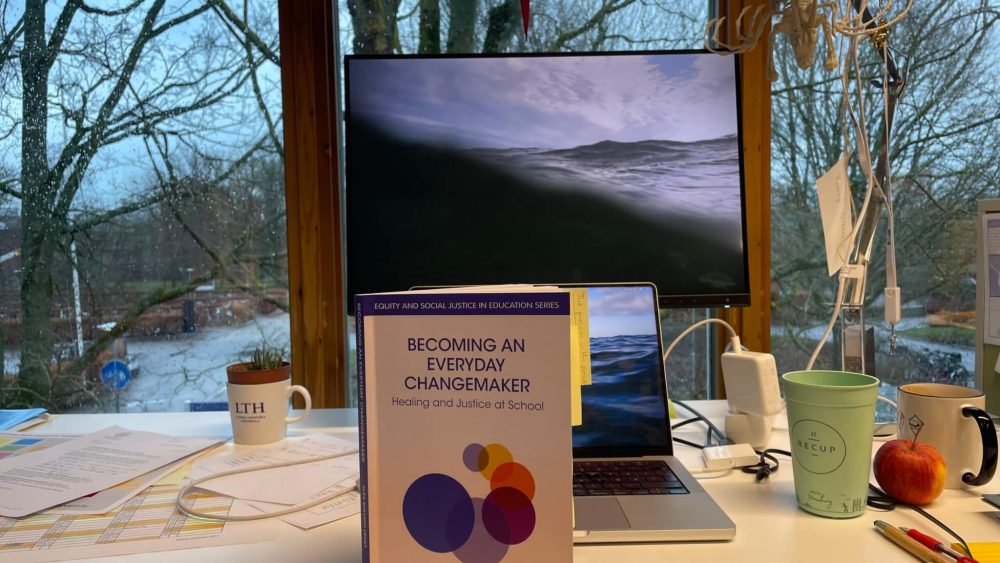During the spring, a handful of people interested in Teaching for Sustainability met to discuss the book “Becoming an Everyday Changemaker: Healing and Justice at School” by Venet (2024). We intentionally set out to do a slow reading of the book — reading the three parts over three months to discuss in one meeting each — to give us the time to read and think, not least about the implications of what we read on our own work.
About the book
First off: This is not a book about teaching for sustainability, yet it is the book that we needed to teach for sustainability. While in some parts very clearly written in a US context and for schools rather than universities and thus not directly applicable to our context, we loved so many of the insights shared there. One of the main messages, “the process is the point” — see also the title of this post, really resonated and has stuck with us. It matters how we do change, and how we approach the change process needs to be a reflection the desired outcomes already. It is so easy to feel overwhelmed in the face of all the work that there is to do for us (in the book with a focus on justice and healing, for us with one on sustainability, but maybe those are one and the same?), and the book carefully explains that we need to move with urgency while also moving slowly and carefully — sustainable — enough to not unintentionally break something along the way, neither around us nor within us. It also really highlights the importance of connecting with people that are unlike us, and working with them rather than for them (or against them) to fix the system. I wrote summaries of the three parts in preparation for the three meetings in case you want to get a quick look (Part 1, part 2, and part 3). But I really recommend reading the real thing, it is an empowering read with lots of deep thoughts and at the same time many practical tips!
About the conversations
I (Mirjam) initially suggested the book because I had started reading it and felt that my work with Steven and Terese on this, our initiative Teaching for Sustainability, would really benefit from many of the insights. I was initially thinking about practical things, like “harbour days”, i.e. days where we all gather to share resources and know-how to work on shared projects together or help each other out with individual tasks. But it quickly became clear that the book gave us a shared language for things that were difficult if not impossible to express before, and helped us shape our work not just on a practical level, but also more generally in how we approach it and the many conflicts that are inherent in what we are trying to do within a system that existed long before us.
About the future
We are planning more book clubs after the summer (starting of with a poetry lunch!). More information on this very soon, and if you have any suggestions we would love to hear from you!

